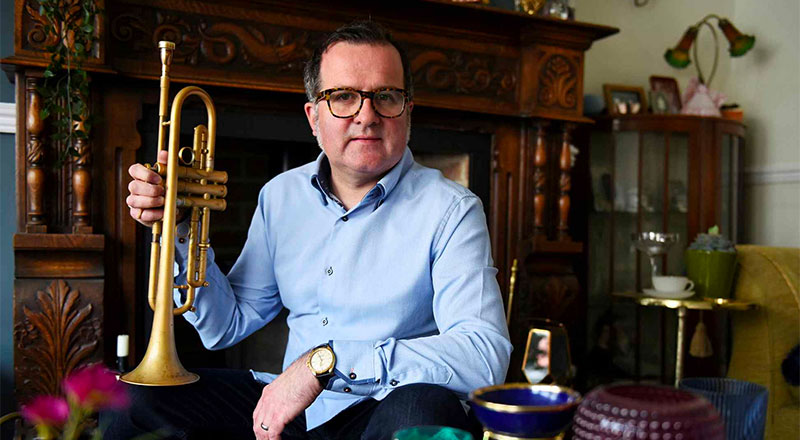Why businesses can learn a lot from jazz and the art of improvisation
By
Dr Noel Dennis
Associate Dean (Marketing & Recruitment)
Over the last few years organisations have had to improvise a lot. They’ve speeded up adoption of digital by several years. They’ve conducted a mass experiment in home working.

They’ve ridden many challenges related to economic uncertainty and, by and large, come out the other side with a more responsive and agile way of doing business.
But are we assuming now that at some point businesses should stop improvising, go back to set-strategies and set aside the dynamism that has driven them over recent times?
I believe that would be a huge mistake – not least because we face another huge period of disruption related to global economic and political challenges, a once-in-a-generation cost of living crisis and an acute skills shortage.
I have a personal interest in this area and have been looking into the benefits of bringing freer-thinking to management teams for over 20 years now. Indeed, I go further by taking a unique approach to business education by building on my expertise as a professional jazz musician with students on Management courses at Teesside University International Business School.
So how does this theory work?
My argument is that organisations should be more like a jazz group – where agility, creativity and innovation are constantly at play. Jazz musicians, by their very nature, are risk-takers. They get very mistrustful of things that are simply written down and want to develop their own ideas to create something new. Perfect, in other words, as an analogy for how businesses need to behave to be responsive to changing circumstances and continually find winning solutions and opportunities.
Here's how I apply the theory to business:
Role definition Each member of the jazz group has in-depth knowledge of each other’s role. For example, the drummer sets the time and the groove and the rhythm section as a whole is akin to a business’s executive team – providing support and empowering frontline instruments (or workers) with a platform for maximum creative expression. Central to a jazz performance is everyone listening to each other and absorbing what is happening at any point.
Quasi-autonomous leadership The jazz group is a leaderless organisation in the context of a performance. Each musician assumes leadership responsibility at certain times – this is down to the empowering culture that is central to the group (and should be to any business that doesn’t want to be dominated by one inflexible vision). Nobody tells someone how to play; no-one dictates how long one should solo for. It is a genuine shared leadership and democratic decision-making process.
Knowledge and innovation Jazz musicians invest a great deal of energy to develop their knowledge of the music and harmony. They follow a simple formula to learn to improvise: first they imitate what has gone before; then they assimilate ideas and innovate by developing their own unique voice and approach. Every time they play a tune they find something new in it. They never play the same improvised solo twice – and like the most successful and innovative businesses they never just go through the motions.
Communication A jazz performance is a dialogue between the musicians in the group. There is a genuine culture of sharing ideas and innovation that any business would be envious of. Any jazz performance also relies on verbal and non-verbal communication. At any point in time everyone in the jazz group knows what is happening and what they need to do next – i.e. the willingness to communicate and collaborate is ingrained and part of their DNA.
Mistakes There are no such thing as mistakes in jazz. Jazz musicians take risks every time and treat mistakes as learning opportunities. There are no recriminations, people are free to voice opinions and experiment without fear. This is exactly the kind of climate of trust that adaptable organisations should be looking for long-term.
Moving forward into the next few years, I believe organisations should carry on taking a more flexible, creative and improvisatory approach to strategy formulation and if anything dial these factors up. Only then will they be able to continue uncovering and embracing innovative opportunities while being truly responsive when more unforeseen disruption occurs.
Dr Noel Dennis is Associate Dean (Marketing & Recruitment) Teesside University International Business School.
